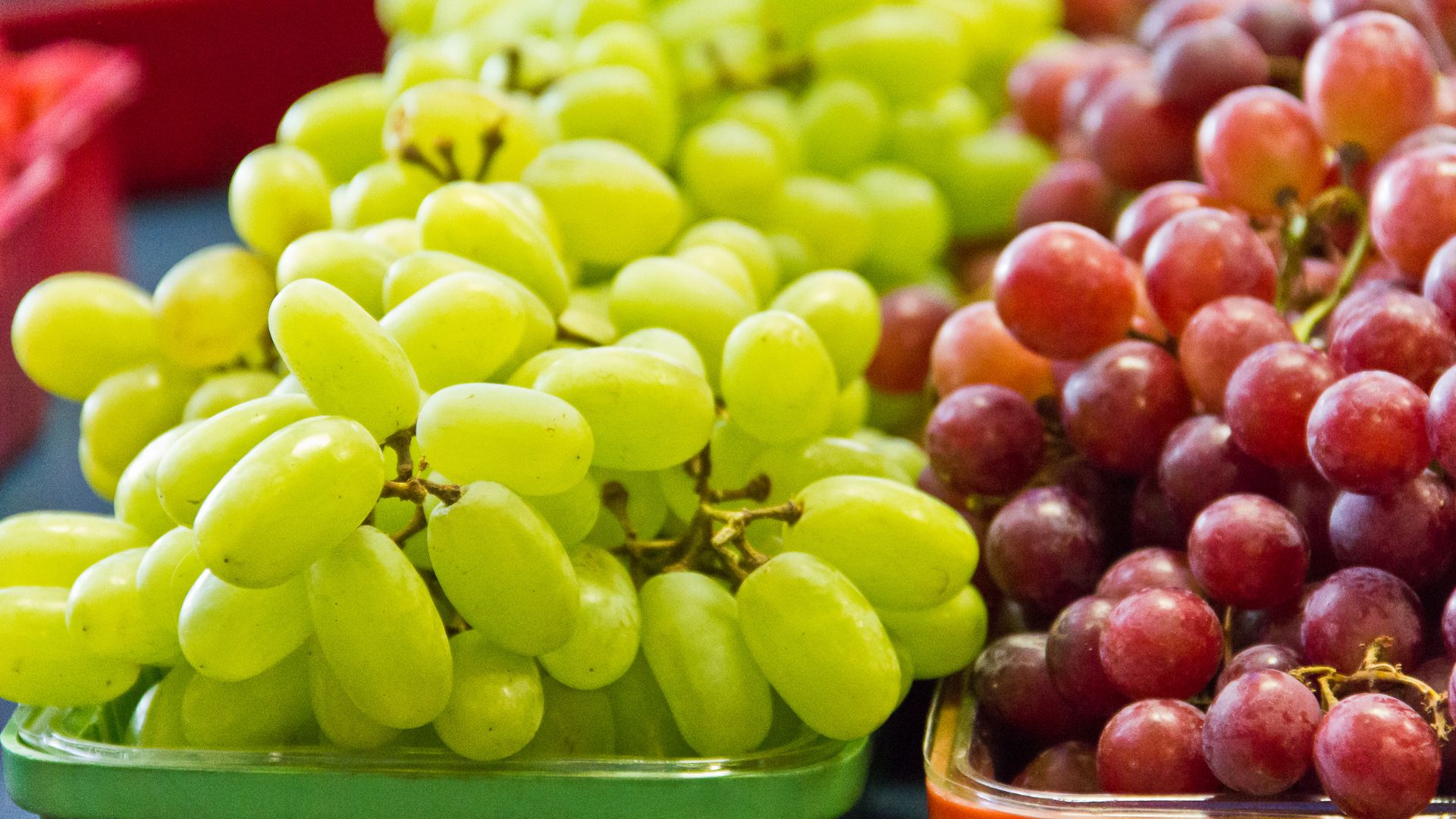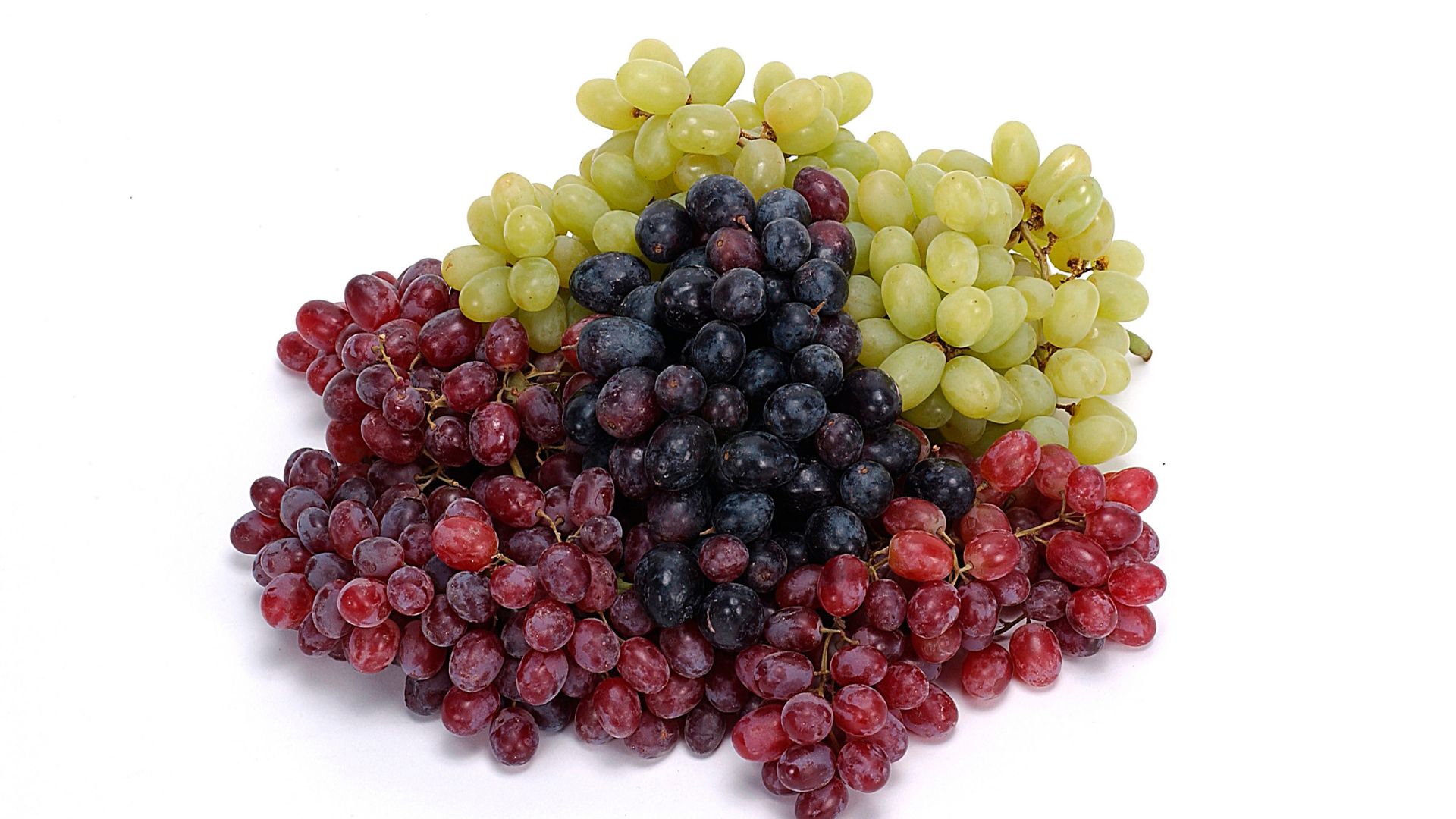The alluring grape is irresistible to many, including your conures.
These vibrant feathered companions are known for their curiosity and love for flavorful treats, and grapes are no exception.
This leads to the question: can conures eat grapes? Much like many other bird species, a juicy grape won’t harm your conure.
Yes, Conures can Eat Grapes. n fact, they might develop a fondness for this fruit.
Overall, grapes are a delectable berry that can be offered to your conures as an occasional treat or a part of their diet.
With their delightful taste and ease of consumption, grapes make an excellent and healthy snack choice for your conures.
Can Conures Eat Grapes?

Conures are quite fond of grapes! Introducing grapes into your conures’ diet can offer wonderful health benefits.
The vitamin C in grapes can aid in stress relief, while their potassium content helps maintain a healthy metabolism for these lively birds.
Grapes are an excellent berry for you to share with your conure during snack time, fostering a delightful bonding experience.
However, it’s important to exercise moderation with grapes, as overconsumption can lead to issues.
Fortunately, there are several warning signs to watch for that indicate if your conure is not reacting well to grapes.
Are Grapes Safe For Conures?
Grapes pose no harm or danger to conures, as they are not toxic to these birds.
Grapes are high in the fruit sugar fructose, which contributes to their sweetness.
However, it’s important to be cautious with the quantity, as excessive consumption can lead to obesity in birds.
While fructose provides energy, it’s crucial not to rely on grapes solely for this benefit in your conure’s diet.
Additionally, grapes may contain pesticides, which should be carefully removed before feeding. To ensure grapes are free from pesticides, thorough washing is necessary.
A fruit wash solution can effectively clean grapes, especially due to their waxy surface which may hold onto pesticides.
If a commercial fruit wash isn’t available, a homemade solution can be made by combining baking soda or vinegar with water in a 1:3 ratio and mixing thoroughly.
This can help ensure the grapes are safe for your conure to enjoy.
Health Benefits Of Grapes For Conures.
Grapes, bursting with nutritional benefits, offer more than just a tasty treat for your conures.
While they shouldn’t be the main component of your bird’s diet, the vitamins and minerals in these juicy berries are essential in preventing chronic diseases.
Delving deeper into the specific nutrients in grapes, let’s explore how they can positively impact your conure’s health:
1. Vitamin C: Essential for reducing stress and boosting the immune system, Vitamin C is crucial for your conure’s mental stability and antibody production.
2. Thiamin (Vitamin B1): Vital for maintaining the nervous system, Thiamin ensures proper coordination and motor control. A deficiency could lead to serious health issues, but fortunately, it’s commonly found in various foods.
3. **Potassium: This mineral is key for metabolism speed, bone strength, blood pressure regulation, and water retention. High potassium diets also help prevent strokes, osteoporosis, and kidney stones.
4. Vitamin B6: Important for protein breakdown, Vitamin B6 is essential for growth, appetite, and egg production in conures.
5. Antioxidants: These compounds combat free radicals that damage cells over time.
Remember, while grapes can reduce stress with their Vitamin C content and offer numerous other health benefits, they should be fed in moderation as part of a balanced diet.
Now, let’s take a closer look at how these nutrients in grapes benefit your conure’s health and wellbeing!
Feeding Grapes to Conures
To safely feed grapes to your conures, follow these simplified steps:
- Inspect and Prepare the Grapes: Ensure the grapes are not rotten. Remove any veins and thoroughly wash the grapes in a bowl of water.
- Rinse Thoroughly: Change the water and wash the grapes multiple times, about three or four times, to ensure they are clean.
- Dry the Grapes: After washing, use a paper towel to gently dry the grapes.
- Feeding Methods:
- Bird Table: Place the grapes on a bird table. Avoid adding other items to the table to keep the focus on the grapes. The bird table also provides shelter and a resting spot for your conures.
- Bird Feeder: If a bird table isn’t available, you can use a bird feeder. Fill it with grapes and observe which method attracts more birds.
- Hanging Tray: Alternatively, you can use a hanging tray. Hang it in a place where your conures can easily reach and enjoy the grapes.
- Garden Ground: As a last resort, you can spread grapes on clean ground in your garden. Ensure the area is free of dust and pests. Avoid using cut grapes as they might attract insects instead of birds.
In warmer weather, don’t leave grapes out for more than two hours to prevent spoilage.
These methods offer various ways to provide grapes to your conures, ensuring they enjoy this healthy treat safely and happily.
Can Conures Eat Too Many Grapes?
Indeed, conures can consume too many grapes. While 12 grams of fructose (natural sugars) in grapes is manageable for humans, birds like conures don’t produce enough of the enzyme required to break down these sugars.
Excess consumption can lead to issues ranging from minor, such as upset stomachs (which could be messy), to more serious health concerns like obesity and diabetes.
Watery Stool
An upset stomach in conures may result in watery stools.
If this occurs, reduce their grape intake and incorporate some fiber into their diet for balance. They should recover swiftly.
Remember, grapes are an excellent snack in moderation but should only be a small part of their diet. Typically, fruits and vegetables should make up only about 20% of a conure’s diet.
Diabetes
Conures, like humans, can develop diabetes from excessive sugar intake.
Overindulgence in sugar can also lead to other diseases and heart disorders.
While sugar in small amounts can be a delightful treat, it can be harmful in excess.
To maintain your conure’s health and vitality, limit their grape consumption to one or two grapes per week.
This will help keep your feathery friend happy and healthy.
